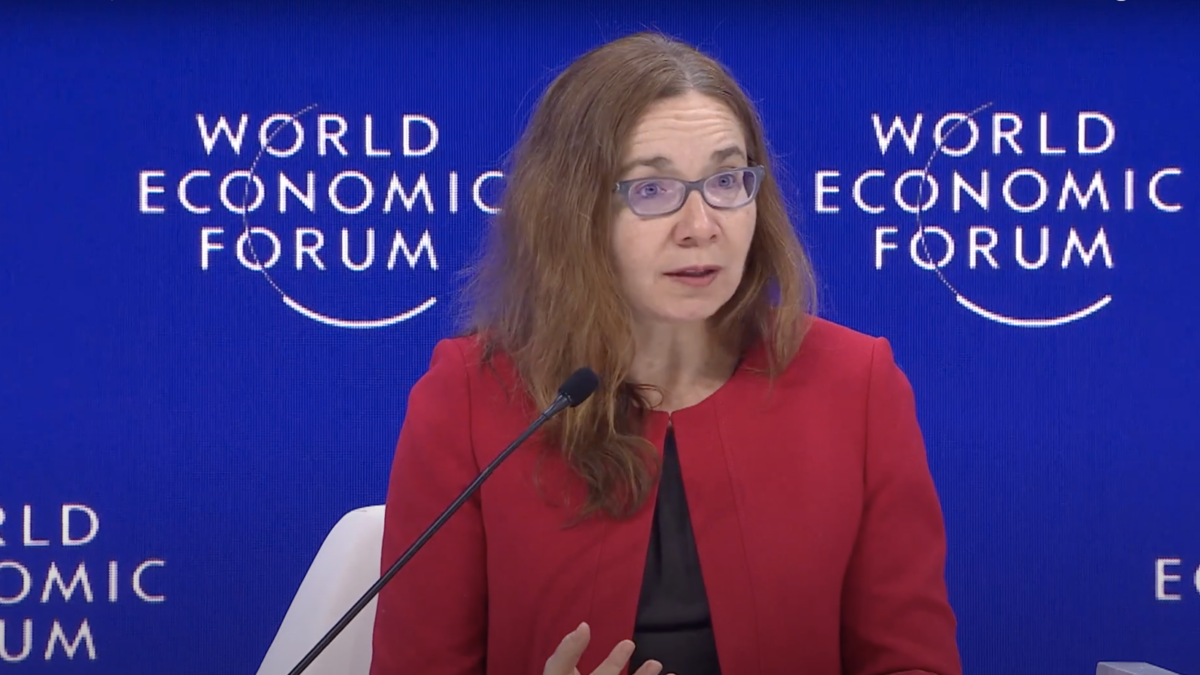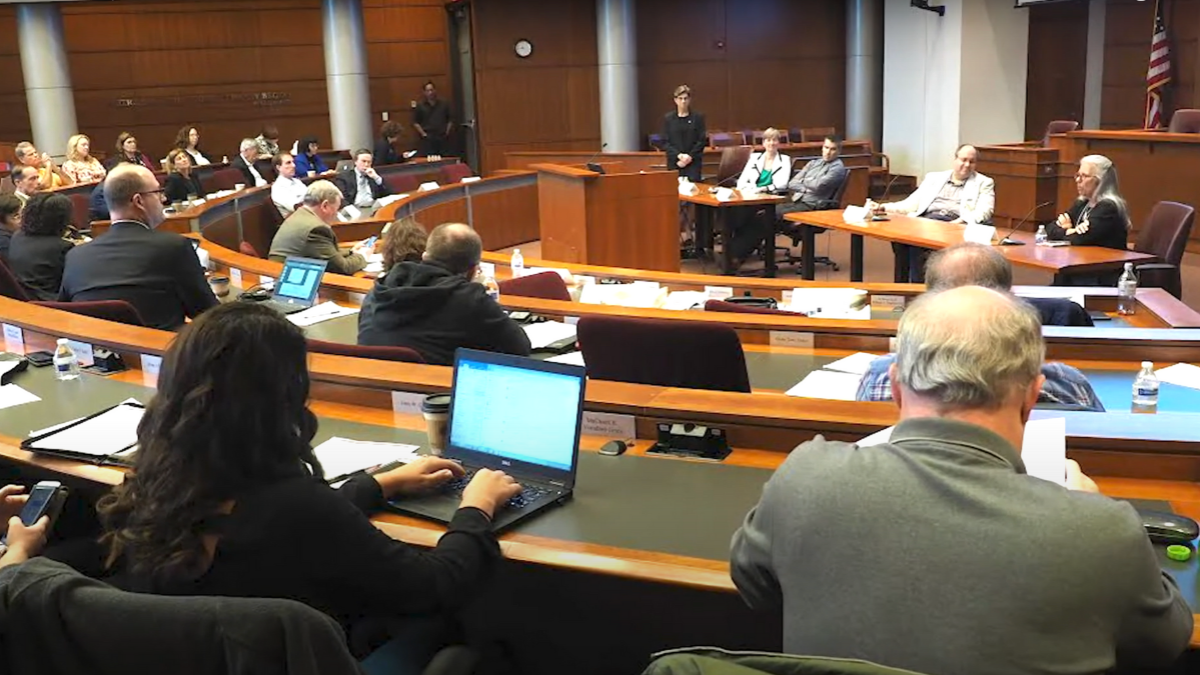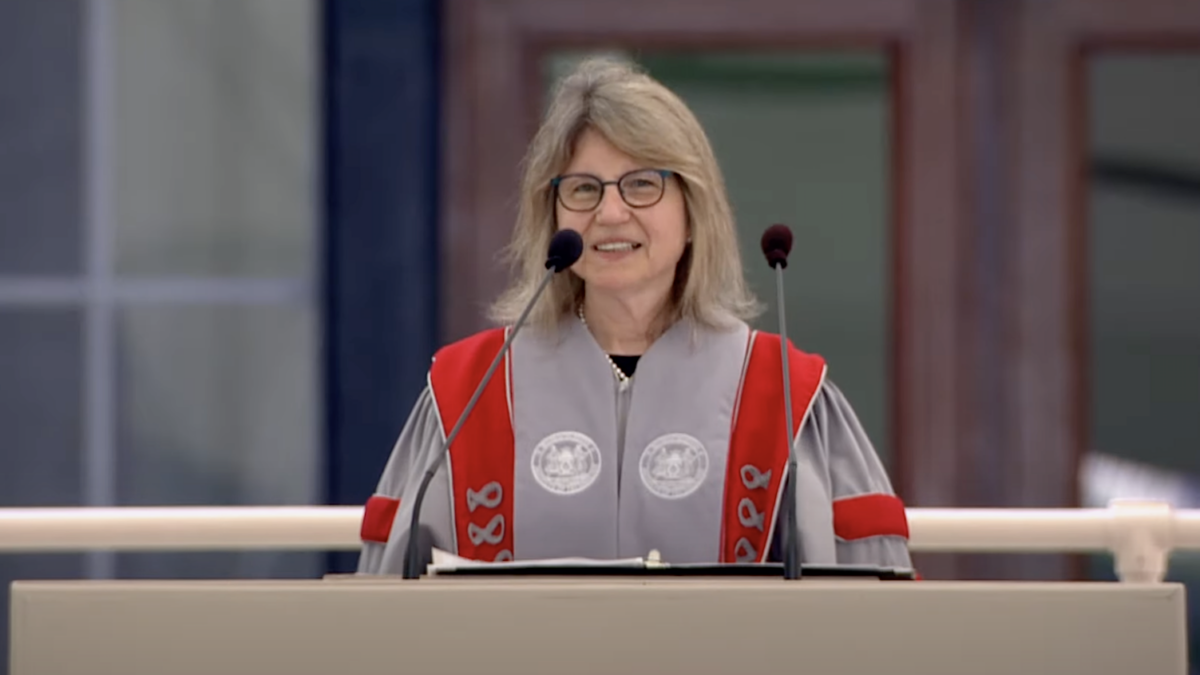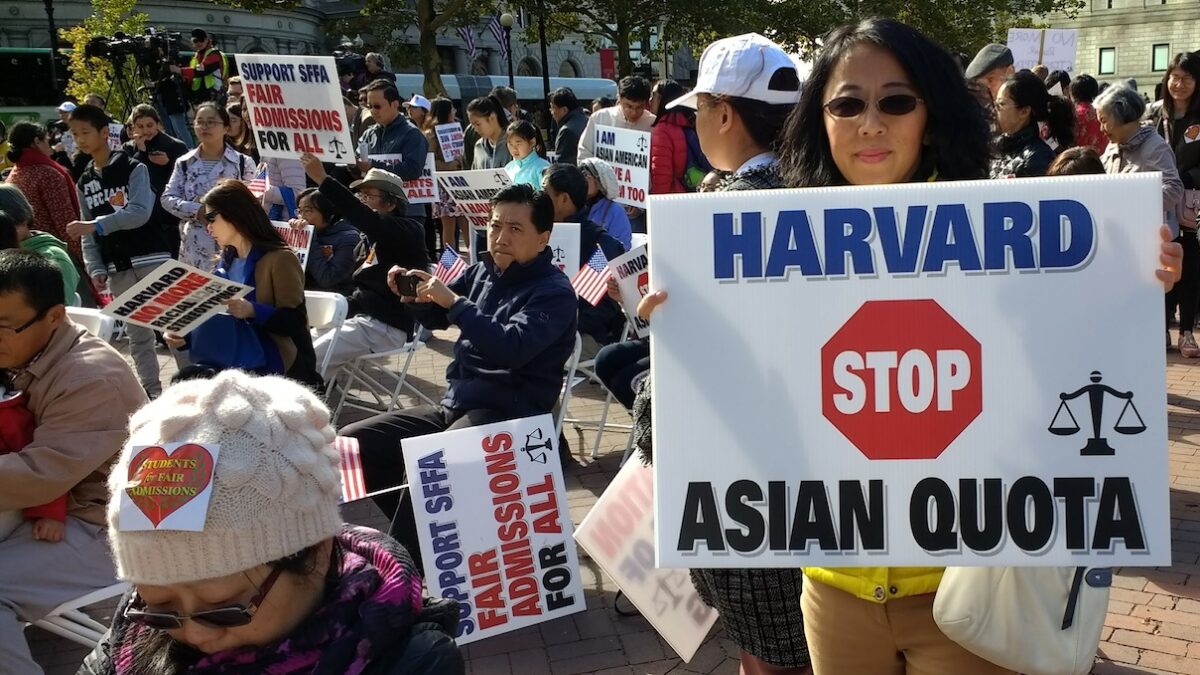The name Katharine Hayhoe may not ring a bell for you. It certainly didn’t for several X users who noted in various posts this week that they were casualties of what appeared to be her mass-blocking binge.
Hayhoe, a political science professor and public health program associate in the Graduate School of Biomedical Sciences at Texas Tech University in Lubbock, Texas, apparently cut off dozens of conservative commentators, Texas Tech alumni, climatologists who dissent from left-wing narratives, and others on X from viewing her feed even though many had never interacted with her account before.
Hayhoe isn’t a nobody simply fending off randoms. She made waves earlier this year after she let a shamanic chieftess cough on her head to kick off a “Climate Crisis and Consequences” panel at the 2024 annual World Economic Forum meeting.
In addition to her WEF ties and a lengthy list of awards and accolades for her climate alarmism, Hayhoe has gained popularity in Christian evangelical circles, and Southeastern Baptist Theological Seminary even tapped her to speak multiple times after she claimed to know how to “reconcile Christianity and climate science.”
Despite her popularity in the leftist-laced world of climate panic, Hayhoe is not interested in sharing her work with anybody and everybody on the internet. If you disagree with her narrow views on climate change or anything else, or follow or engage with someone who does, you are eligible for her blacklist.
The banner gracing the Canadian’s X account boasts of blocking “trolls” who disagree with the sentiment “the most important thing you can do to fight climate change: talk about it.”
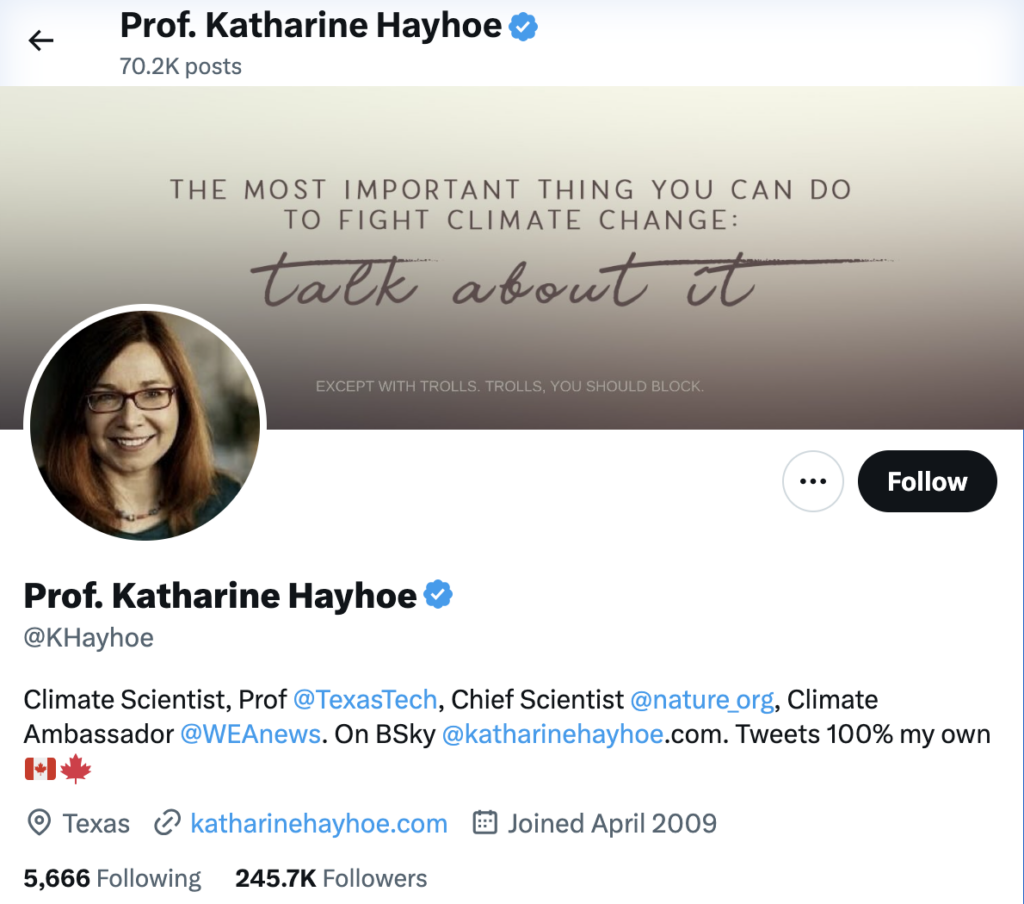
Hayhoe takes pride in blocking not just internet trolls, but anyone who shares content she deems “hate.”
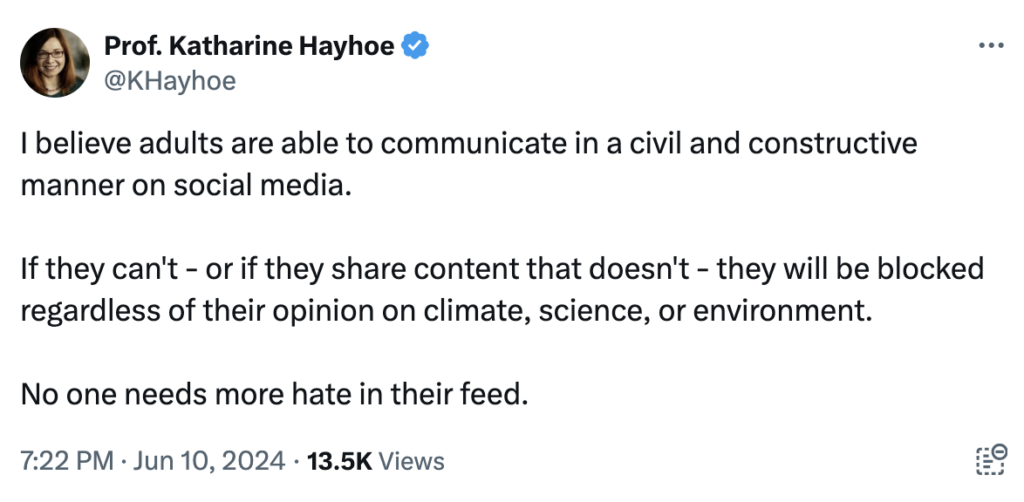
Users who questioned her methods were scolded and told to review her previous posts purporting “humans are the dominant source of warming.”
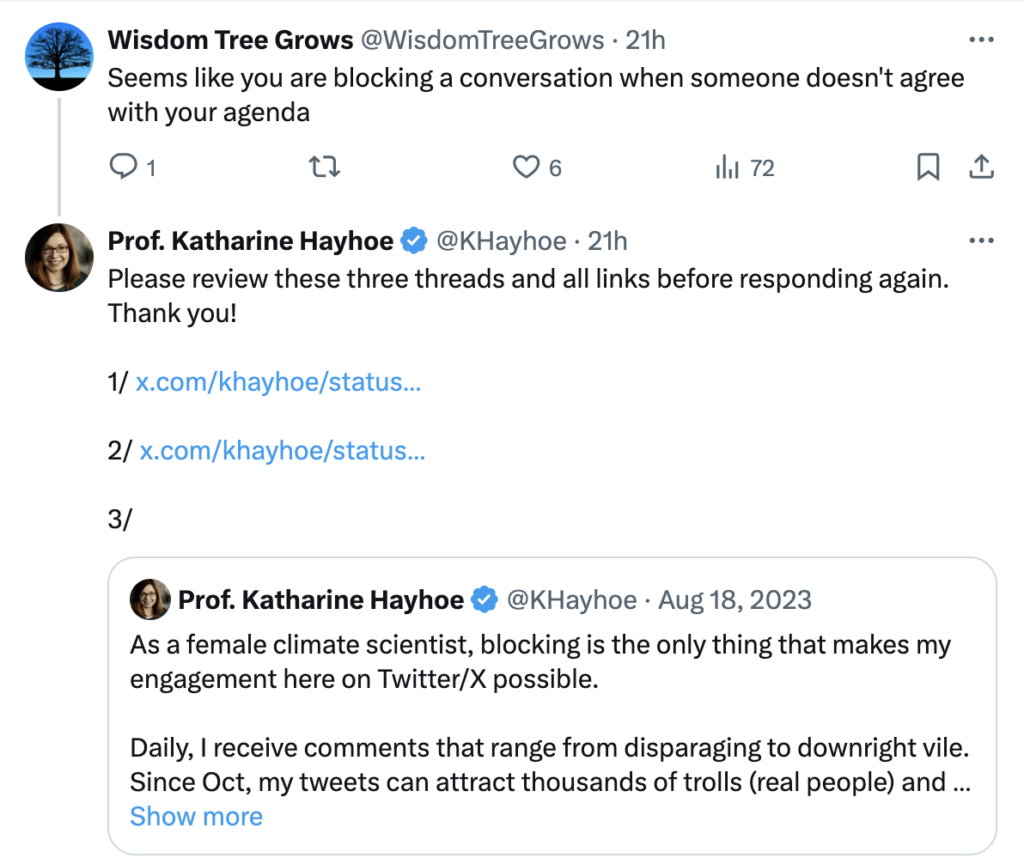
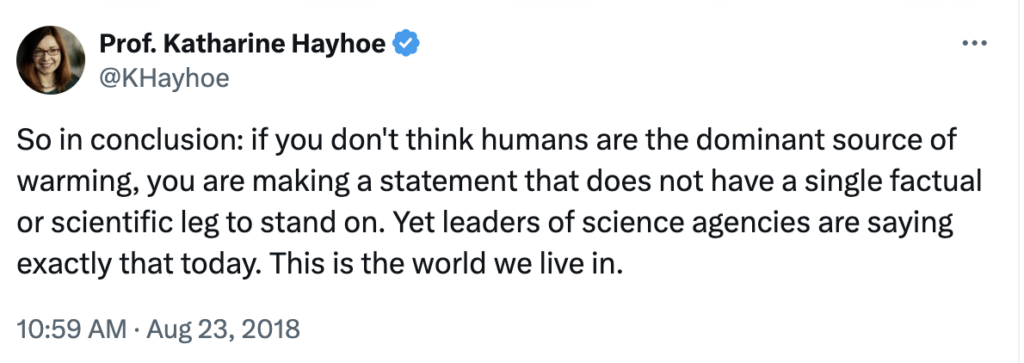
“As a female climate scientist, blocking is the only thing that makes my engagement here on Twitter/X possible,” Hayhoe wrote last year, openly worrying that people who see an alternate viewpoint on climate change will “engage with it.”
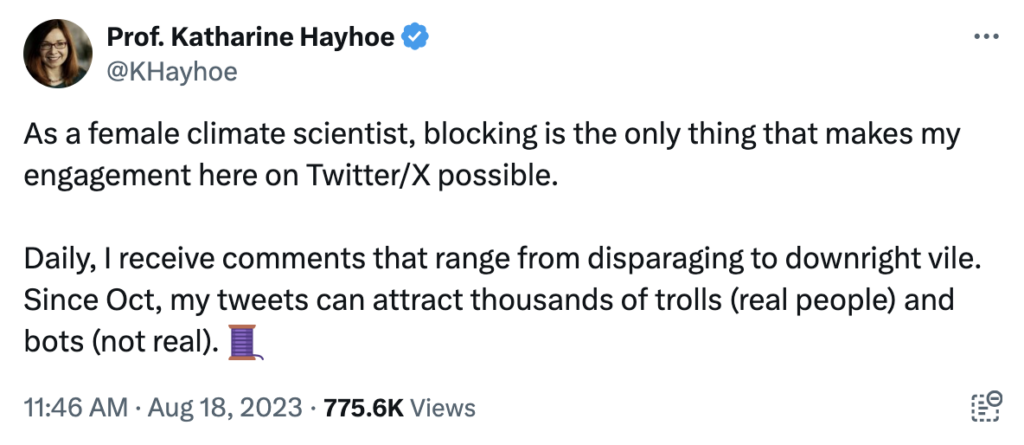

Hayhoe is described by the New York Times as “one of the nation’s most effective communicators on climate change.” Several people claiming to be her former students asserted on Rate My Professor that she inappropriately used university resources to propagandize students in favor of the leftist climate change agenda she professionally touts.
One reviewer who allegedly took the class in 2022 said Hayhoe used a “misleading” course description to lure students into her classroom under the guise of a political science credit for upperclassmen. Her ultimate goal, however, was “creating climate activists” out of them.
Another accused the “closed minded” Hayhoe of “using political science to propagate her activism.”
“She should not be teaching this course as a Political Science class. This course was focused on proving her claims as a climatologist rather than focusing on the political division the subject causes like she promised. She lied about the intent,” the 2022 review states.
In a 2020 post, Hayhoe admitted that Texas Tech students are less willing to take a class if it contains the word “climate” because “they are self-selecting and not taking it if they don’t accept the science.”
“If the content includes climate but it’s not in the title, they were. Which is a bigger problem IMHO!” she wrote.
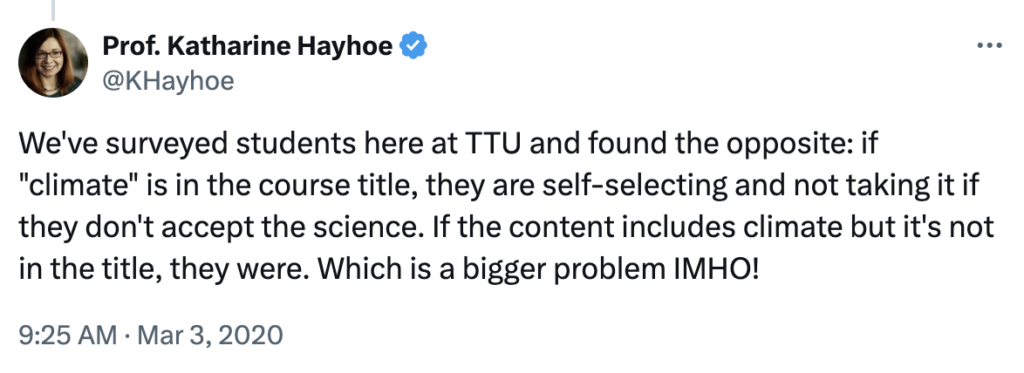
Hayhoe’s behavior is ripe for criticism from the public and her employer, especially since Texas Tech was dubbed one of the most conservative public universities in the nation. Yet, her penchant for shutting out anyone on social media who holds different political beliefs than she does suggests an attempt to stifle that criticism from reaching the right person’s ears.
The Supreme Court ruled this year that it is a First Amendment violation for public officials who post about their government-funded work on personal social media accounts to block citizens from accessing their feeds. As Justice Amy Coney Barrett noted in the court’s unanimous opinion, infringement occurs when a government employee silences social media critics despite having “actual authority to speak on behalf of the state on a particular matter” and after “purport[ing] to exercise that authority in the relevant posts.”
Since Hayhoe’s paycheck comes from an institution that is funded by the federal and state governments, her social media activity — including an unprompted blocking spree — could be subject to the test outlined by the high bench.
Hayhoe, her personal assistant, the Texas Tech chancellor’s Chief of Staff Dailey Fuller, and the university’s Vice President of Marketing and Communications Matthew Dewey did not respond to questions about whether or not the professor received approval from the state school’s general counsel to initiate a widespread blocking campaign. The parties in question also did not say whether Hayhoe’s blocking bender was a deliberate attempt to prevent university stakeholders from viewing her content.
